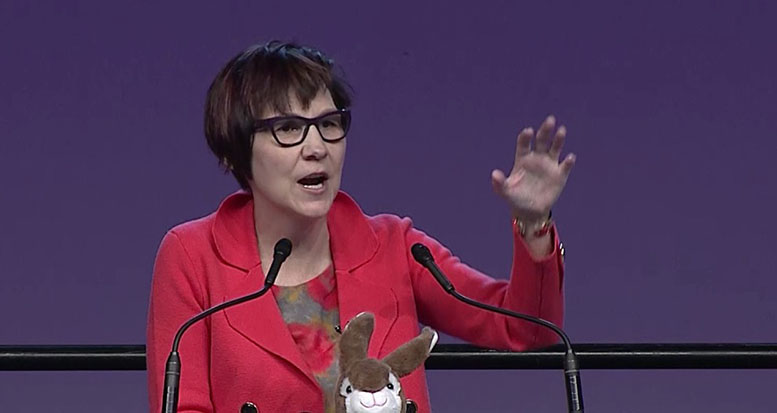By Jeremy Appel, Local Journalism Initiative Reporter
(ANNews) – The Assembly of First Nations (AFN) and First Nations Child and Family Caring Society have agreed on a final settlement agreement worth $23 billion for children who were systematically discriminated against in the Canadian child welfare system.
The deal was subsequently endorsed by delegates to the AFN’s special chiefs assembly on April 3, bringing a 16-year legal battle to a conclusion.
In 2007, the AFN and Caring Society first brought forward their complaint to the Canadian Human Rights Tribunal (CHRT), which was accompanied by a class action suit from the who suffered under the child welfare system’s discrimination against Indigenous people.
A 2016 CHRT decision found that the Canadian government’s perpetual underfunding of on-reserve First Nations child welfare and family services, and its refusal to pay for health care through Jordan’s Principle, amounted to racial discrimination.
Jordan’s Principle states that in disputes between federal and provincial governments regarding funding for First Nations services, the priority is for the service to be provided, with financial disputes between governments resolved after the fact.
A tentative $20-billion compensation deal reached last year between the Crown and AFN was struck down by the tribunal, upon the urging of the Caring Society, because it excluded children who weren’t in federally funded child welfare placements.
The additional $3 billion ensures that everyone who is entitled to $40,000 in compensation receives it, according to a joint news release from the AFN and Caring Society.
“We’ve held our children, youth, and families in our hearts and in our prayers throughout
negotiations towards the revised FSA,” AFN Manitoba Regional Chief Cindy Woodhouse said in the release.
Woodhouse credited the “collective efforts of the AFN and Caring Society at the negotiating table” with achieving the “best possible agreement to compensate our children and families harmed by Canada’s discrimination.”
Caring Society executive director Cindy Blackstock said “this compensation recognizes the serious harms First Nations, children, youth, and families suffered including unnecessary family separations and the denial of life saving and life wellness services.”
Blackstock said it’s of the utmost importance to “ensure this is the last generation of First Nations children who are hurt by the Government of Canada. That work continues and they are our inspiration to get it right.”
Woodhouse added that the AFN special chiefs assembly’s approval allows the AFN to bring the new agreement to the rights tribunal with one voice.
The Union of B.C. Indian Chiefs, in a statement, applauded the agreement for including all those who were previously excluded from the initial deal.
Grand Chief Stewart Phillip hailed the “unparalleled and unprecedented recognition of and compensation for the egregious harms experienced by First Nations children, their families, and communities, as a result of Canada’s discrimination.”
“We must reflect on, celebrate, and honour our children who became victims and survivors, some of whom are with us and some whom have passed on, whose stories have led to the revised Final Settlement Agreement on Compensation for First Nations Children and Families, being achieved, to end the cycle of child removal and abuse,” Phillip added.
Cheryl Casimer, First Nation Summit political executive, said the new deal “is a long-fought and long-awaited step towards meaningful reconciliation.”
“No settlement will ever undo or reconcile the harms experienced, which continue to have revolving impacts on our families and communities. It is our responsibility to continuously work to end the imposition of colonization on our peoples, as manifested through ongoing child welfare systems, policies, and practices,” Casimer said.
B.C. AFN Regional Chief Terry Teegee said the fight to have all victims compensated, rather than most of them as the previous deal would have done, “reflects our continual and collective pursuit of justice for our children, youth, and families, nothing less of which will suffice.”
While the April 3 agreement is “cause for tremendous celebration and will be remembered in our hearts and history books, as a pivotal moment in our shared history,” it’s now time to ensure broader reform to the system, Regional Chief Teegee added.
The system must be reformed to guarantee the “prioritization of long-term, sustainable, predictable, and needs-based funding to ensure our people are adequately equipped to exercise their inherent rights to jurisdiction over child and family services.”
Chair of the Indigenous Child & Family Services Directors Our Children Our Way Society, Mary Teegee (Maaxw Gibuu) of Takla Nation, identified three goals of the litigation: “to end discrimination against children and families, to ensure discrimination never happens again, and to compensate the children and families who suffered.”
The revised agreement will provide a “measure of justice to our children,” who “are our most precious resource, and they deserve nothing less,” Mary Teegee added. But work on long-term reform to the system must continue to guarantee “that no child suffers discrimination ever again.”



This write yo does not mention the years allocated for the payout.
Or the ages.